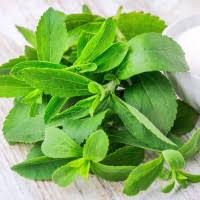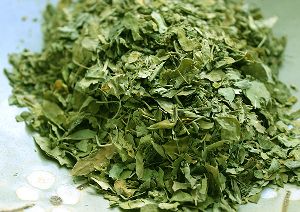






Dried holy basil leaves
Get Price Quote
50 Piece (MOQ)
Holy Basil Botanical name: Ocimum basilicum Ocimum basilicum, also known as Holy Basil, tulsi, is an aromatic plant in the family Lamiaceae. It is considered a sacred plant by the Hindus and is often planted around Hindu shrines. The Hindu name for holy basil, Tulsi, means "the incomparable one." The variety of Ocimum basilicum used in Thai cuisine is referred to as Thai holy basil. Tulsi has been used for thousands of years in Ayurveda for its diverse healing properties. It is not to be confused with Thai basil which is a variety of Ocimum basilicum. Benefits and uses: Holy basil is used for the common cold, influenza H1N1 (swine) flu, diabetes, asthma, bronchitis, earache, headache, stomach upset, heart disease, fever, viral hepatitis, malaria, stress, and tuberculosis. It is also used for mercury poisoning, to promote longevity, as a mosquito repellent, and to counteract snake and scorpion bites. The leaves strengthen the stomach and induce copious perspiration. The seed of the plant are mucilaginous. Holy Basil is extremely effective in curing nearly all types of respiratory disorders, including chronic and acute bronchitis. It is an important constituent of many Ayurvedic cough syrups and expectorants. It helps to mobilize mucus in bronchitis and asthma. Basil has strengthening effect on the kidney. In case of renal stone the juice of basil leaves and honey are useful. Basil has a beneficial effect in cardiac disease and the weakness resulting from them. It reduces the level of blood cholesterol. Basil leaves are regarded as an 'adaptogen' or anti-stress agent. Basil juice is an effective remedy for sore eyes and night-blindness, which is generally caused by deficiency of vitamin A. Applied locally, basil juice is beneficial in the treatment of ringworm and other skin diseases. The leaf extract is effective in checking the spread of the fungal pathogens Pyricularia oryzae and Rhizoctonia solani, which cause blast disease and sheath blight disease of rice. Antibacterial activity and deterrent against the larvae of root knot nematode (Meloidogyne incognita) have been reported, and the oil is a mosquito repellent. The ethanol extract (90%) of the leaves also showed hepatoprotective effect against paracetamol-induced liver damage. Oral administration of the alcoholic extract of the leaves lowers blood sugar level in normal

Dried Tulsi Leaves
95 Per Kilogram
50 Kilogram (MOQ)
Best Deals from Dried Tulsi Leaves

leaves
Get Price Quote
leaves, Agro Products